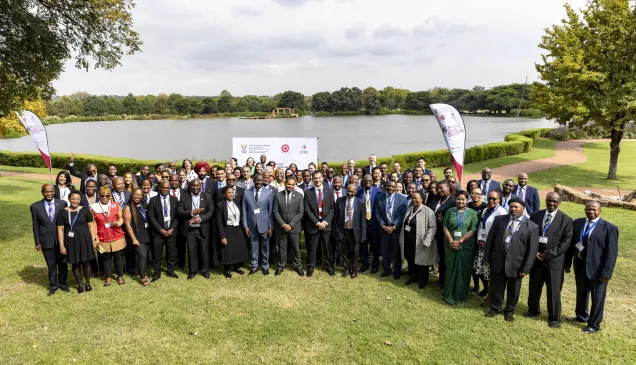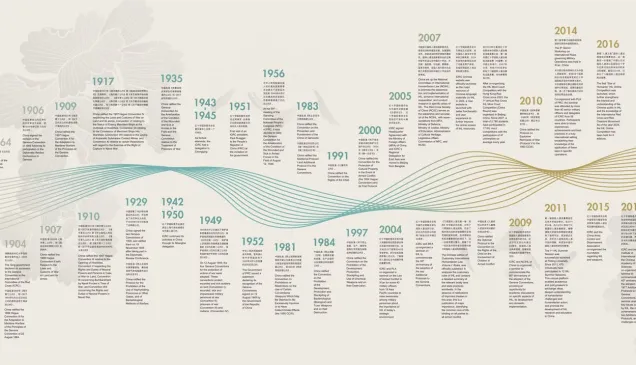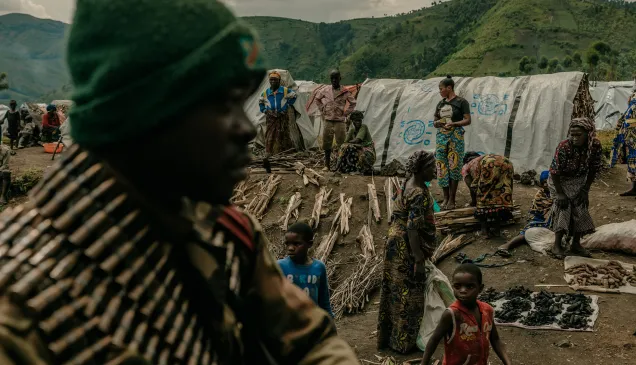Myanmar: Recovery work begins to support flood-affected communities
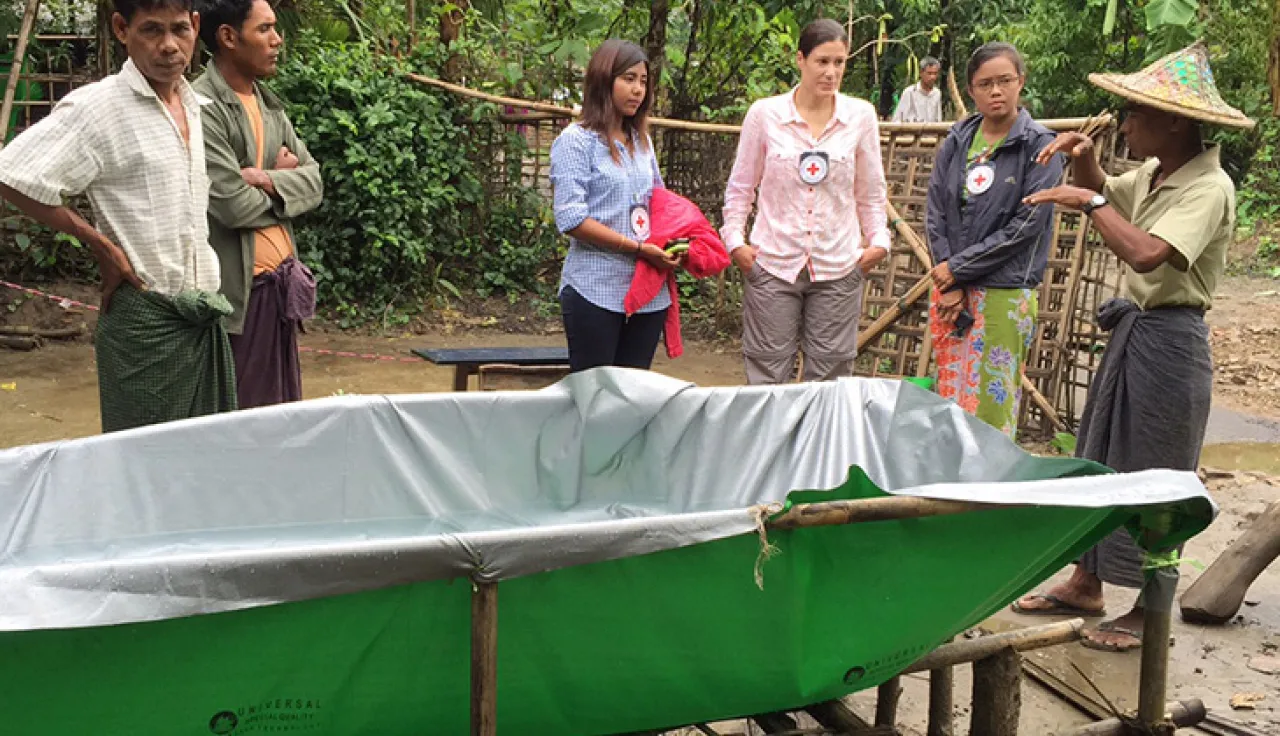
One month after cyclone Komen and heavy seasonal rains caused floods and landslides in Myanmar, recovery work has started.
The ICRC and Myanmar Red Cross Society (MRCS) are distributing food and essential items to 60,000 people in Rakhine, where the ICRC already has a strong operational presence. Read full update
"As water has receded, people going back home will need basic help to restart their lives. Thus, we have decided to continue to step up our relief efforts," explains Enrique Ochoa Fernandez-Lomana, head of the ICRC in Sittwe.
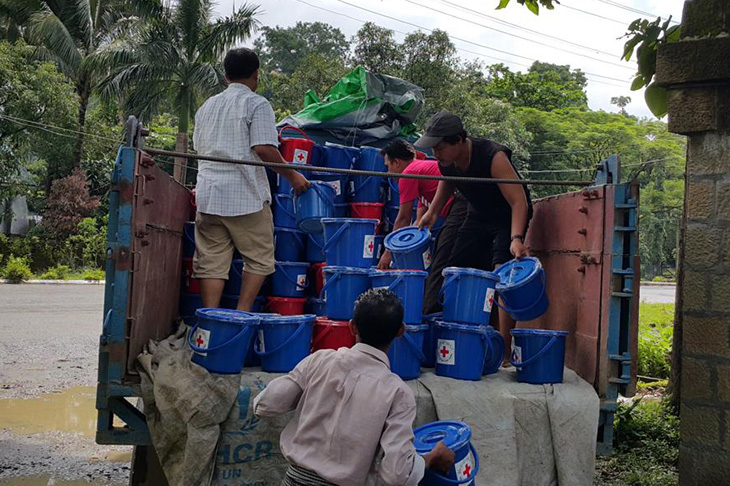
Distribution of essential items, such as mats, blankets, hygiene kits and mosquito nets, in Mrauk-U, Rakhine. CC BY-NC-ND / ICRC
According to the Rakhine authorities, floods have caused 55 deaths, devastated 270,000 acres of paddy fields, and affected over 150,000 people.
In the first days after the floods, the ICRC concentrated its work on emergency activities:
- Distributing rice and other essential items, such as mats, blankets, hygiene kits and mosquito nets, to more than 12,000 people in Mrauk-U
- Supplying drugs and other medical supplies to hospitals in Mrauk-U, Kyaukta and Minbya, and supporting the hospitals to deploy mobile clinics to affected areas
- Providing tarpaulins to families in Sittwe
The MRCS has also distributed essential items to over 10,000 people.
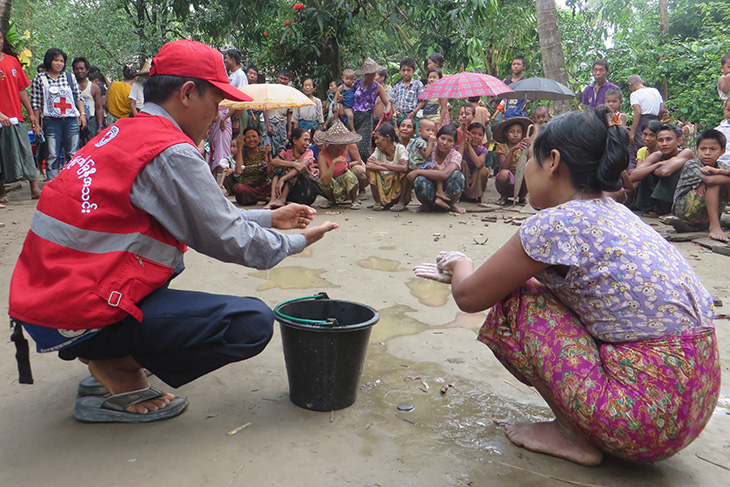
Hand washing demonstration by a villager under the supervision of the Myanmar Red Cross Society Health Education facilitator. BY-NC-ND / ICRC / Tin Moe Hlaing
Stepping up relief efforts in Myanmar
Since last week, the ICRC and the MRCS have started distributing food and essential items to 60,000 people in Mrauk-U, Kyauktaw and Minbya. In addition, both organizations are helping more than 60 villages in those areas to have access to safe drinking water and to clean ponds that were contaminated. Already, 70 ponds have been cleaned, benefiting over 10,000 people.
In the next six months, the ICRC and MRCS plan to support the livelihoods of and improve job opportunities for 25,000 people.
"We will encourage cash grants or cash-for-work projects aimed at cleaning up public infrastructure, like hospitals, while providing basic income opportunities for the community," explains Mr. Ochoa Fernandez-Lomana.
The ICRC operation will retain flexibility to be able to consider situations of extreme vulnerability taking into account the response other humanitarian actors are scaling up at the moment.

